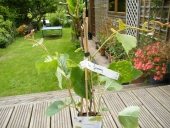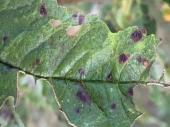
 1
1








Our projects:
in Portugal, sheltered terraces facing eastwards, high water table, uphill original forest of pines, oaks and chestnuts. 2000m2
in Iceland: converted flat lawn, compacted poor soil, cold, windy, humid climate, cold, short summer. 50m2




Get involved -Take away the standing of corporations MovetoAmmend.org









 1
1








 1
1





















 2
2




Vic Johanson
"I must Create a System, or be enslaved by another Man's"--William Blake




 1
1




Country oriented nerd with primary interests in alternate energy in particular solar. Dabble in gardening, trees, cob, soil building and a host of others.
 2
2




Gert in the making
 2
2




"The rule of no realm is mine. But all worthy things that are in peril as the world now stands, these are my care. And for my part, I shall not wholly fail in my task if anything that passes through this night can still grow fairer or bear fruit and flower again in days to come. For I too am a steward. Did you not know?" Gandolf




 1
1




Vic Johanson
"I must Create a System, or be enslaved by another Man's"--William Blake

| I agree. Here's the link: http://stoves2.com |




